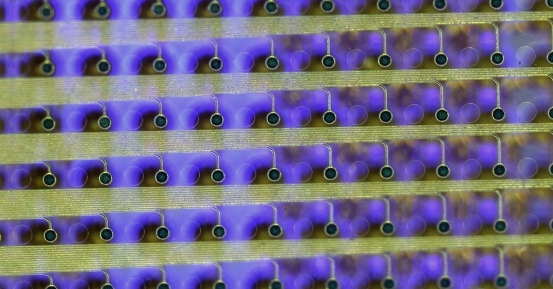
By:
- Paul K. Mueller
Published Date
By:
- Paul K. Mueller
Share This:
New Chair Sets Fast Pace as Academic Senate Returns to Business
Perhaps because the original opening session on October 10 had been cancelled, the new chair of UC San Diego's Academic Senate, Joel Sobel, started the assembly's business quickly and efficiently on Tuesday, Nov. 29. Somebody once estimated, the professor of economics said, that so many faculty members meeting for an hour costs many thousands of dollars, and he promised to use everybody's valuable time productively.
What seemed to draw many to the meeting was a report by the Committee on Academic Freedom (CAF), a follow-up to an issue that occupied the previous session of the senate. CAF, one of several committees through which the issue has traveled, was asked in March of this year to again study accusations, which date to June of 2009, that a professor's academic freedom might have been violated.
In summary, an academic dean attempted to resolve a dispute between two professors by instructing one not to comment on the other's research, and warning of consequences if he did not comply.
After hearing a report from CAF that concluded that “the administration did indeed violate generally accepted norms of academic freedom,” the senate passed a resolution in May 2011 that asked the administration to publicly acknowledge “a violation of academic freedom,” and to train administrators, staff and academics in academic-freedom issues.
The follow-up report on Tuesday confirmed that the administration has done or is doing what the resolution asked. One member of the assembly, Theodore Groves, rose to agree with the committee but to fault the wording of part of the administration's response.
Prior to that mid-session business, Sobel introduced brief presentations by Chancellor Fox and Executive Vice Chancellor Subramani.
Fox read the Joint Academic Senate and Administration Message about Free Speech and Peaceful Assembly, also distributed as an all-campus e-mail on Nov. 23. "We share the widely expressed outrage at the violent responses to peaceful demonstrations on our sister University of California campuses," the statement said in part. "Our campus is steadfast in our resolve to protect fundamental rights of free speech peaceful assembly." The senate and the administration fully endorsed the UC Academic Council's statements.
Fox also gave an update on budget details discussed by the Regents. The 2012-13 UC Expenditure Plan calls for one-percent growth in enrollment -- about 2,100 students -- and more instructional support for students. The plan asks for $2.7 billion from the state, a bit more than the current $2.3 billion, but still about $500 million less than UC received four years ago. Finally, the chancellor noted the dedication, earlier that day, of the Sanford Consortium for Regenerative Medicine, a "collaboratory" among Torrey Mesa partners, on the UCSD campus.
Subramani briefed the assembly on a variety of current issues, including an update on the search for a Vice Chancellor for Diversity; the recent and well-attended Founders' Symposium and its "Flash Forward from 50" theme; and ongoing education and research initiatives.
In formal business, the assembly received annual reports from the committees on Academic Personnel, Academic Information Technology, Diversity and Equity, and Research.
The group also accepted the report of the Senate Task Force on Appointment of Senate Faculty in Undergraduate Colleges. The task force was unanimous in finding that "undergraduate colleges will continue to hold responsibility for providing the core education of undergraduate students in the liberal arts and in expository, argumentative, and/or creative writing." That being so, the task force said, "it will continue to be necessary for colleges to have the authority to appoint Senate Faculty whose allegiance is to them rather than to particular Departments."
The senate approved a proposal from the Graduate Council to establish a terminal Master of Science degree program at the Scripps Institution of Oceanography, and elected Roddey Reid, professor of literature, to the Senate Council.
With no further business, the senate adjourned. The next meeting is scheduled for 3:30 p.m. on Tuesday, January 31, in the Leichtag Building conference room. More information about the Academic Senate is available here.
Share This:
You May Also Like
Stay in the Know
Keep up with all the latest from UC San Diego. Subscribe to the newsletter today.


